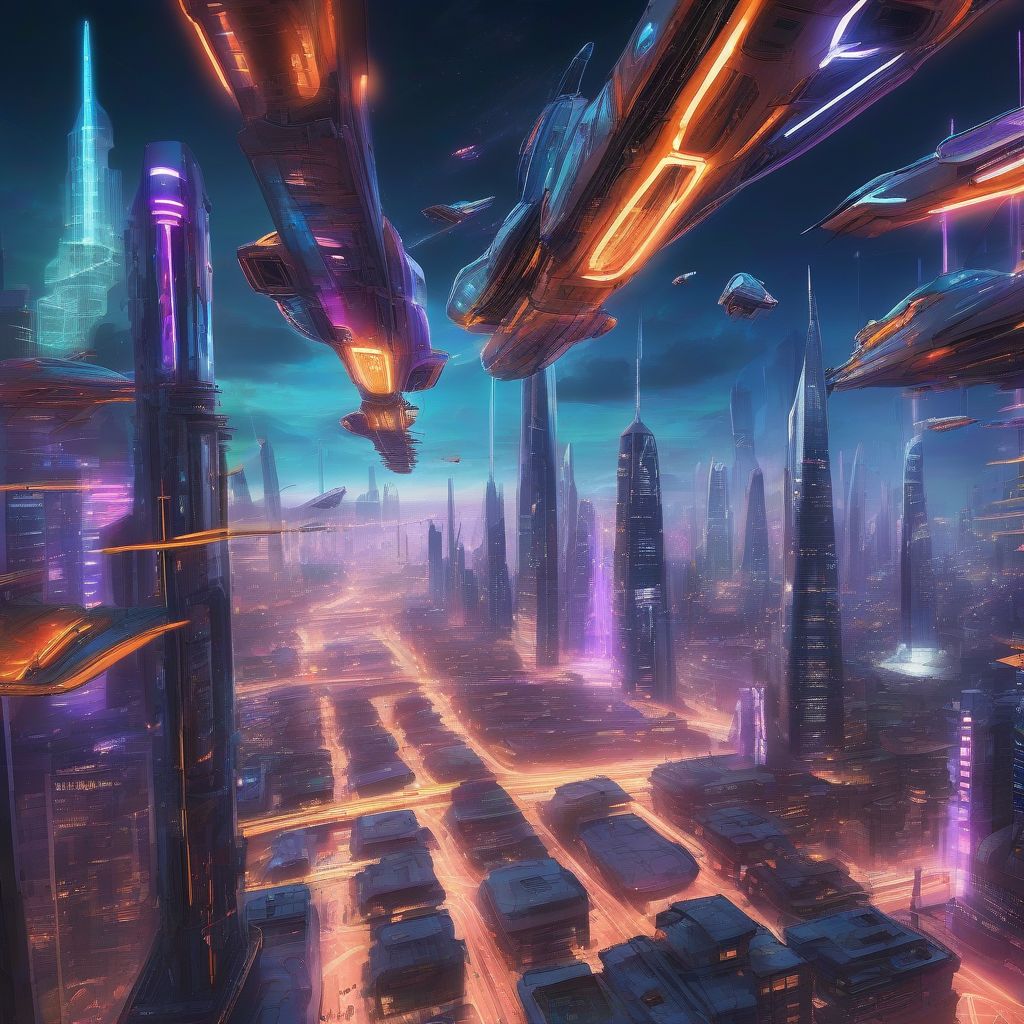Have you ever finished a science fiction novel and felt like you’d lived a thousand lives on a thousand different planets? That, my friend, is the power of great science fiction. But sometimes, we want to go beyond simply enjoying the ride and delve deeper into the author’s craft.
This article is your guide to not just reading, but truly appreciating the artistry and depth of science fiction novels. We’ll explore how to analyze these captivating stories, uncovering the layers of meaning woven into their narratives.
Understanding the Elements of Science Fiction
Before we dive into analysis, let’s establish a common ground. Science fiction, at its core, explores the “what ifs” of science, technology, and societal structures. To understand these stories, we need to recognize their key elements:
1. Worldbuilding: Science fiction often transports us to new worlds or drastically altered versions of our own. Pay attention to how the author constructs this world:
- Environment: Is it a desolate wasteland, a technologically advanced utopia, or a planet teeming with bizarre life forms?
- Society: How do people in this world organize themselves? Are there social hierarchies, governments, or unique cultural practices?
- Technology: What technological advancements define this world? How do they impact the characters’ lives and shape the story’s conflicts?
2. Characters: Just like any genre, compelling characters are the heart of science fiction. Consider:
- Motivations: What drives the protagonist? Are their goals influenced by the unique circumstances of their world?
- Growth: Do the characters evolve in response to the challenges they face? How do their experiences change their perspectives?
- Relatability: Even in extraordinary settings, the best science fiction characters have relatable flaws, desires, and fears.
3. Themes: Science fiction often grapples with complex themes that resonate with our own lives. Some common themes include:
- The impact of technology on humanity: Does technology empower or enslave? How does it affect our relationships and values?
- The nature of reality and consciousness: What makes us human? What are the ethical implications of artificial intelligence or genetic engineering?
- Social and political commentary: Science fiction often uses futuristic settings to explore contemporary issues like inequality, environmental destruction, and political corruption.
 Science-Fiction-World
Science-Fiction-World
Analyzing a Science Fiction Novel: Key Questions to Ask
Now that you understand the building blocks, let’s delve into analysis. Here are some key questions to guide you:
1. What is the novel’s central question? Every great science fiction story grapples with a big question. Is it about the limits of human knowledge? The ethics of artificial intelligence? Identifying this central question will unlock deeper layers of meaning within the narrative.
2. How does the setting influence the plot and characters? The environment, technology, and societal structures of the world should directly impact the story’s events and the characters’ actions. How does the world shape the conflicts they face and the choices they make?
3. What are the author’s underlying messages? Science fiction often serves as a platform for social commentary or philosophical exploration. What ideas is the author trying to convey through their world and characters?
4. How effective is the author’s use of language and imagery? Science fiction often employs vivid descriptions and inventive language to immerse the reader in its world. Pay attention to how the author uses words to create a sense of wonder, tension, or other desired effects.
5. What is the novel’s lasting impact? A good science fiction novel stays with you long after you’ve finished reading. What questions does it raise in your mind? How does it change your perspective on the world or the future?
Appreciating Science Fiction: Beyond the Page
Analyzing science fiction is like unlocking a treasure chest of ideas. But appreciation goes beyond analysis. Here’s how to deepen your engagement:
1. Explore different subgenres: Science fiction is a vast and diverse genre. Branch out and discover your favorites, from cyberpunk and space opera to dystopian fiction and hard science fiction.
2. Join a book club or online community: Discussing your thoughts and interpretations with fellow enthusiasts can enrich your understanding and introduce you to new perspectives.
3. Explore adaptations: Many science fiction novels have been adapted into films, TV shows, and video games. Comparing and contrasting different interpretations can be a fascinating way to engage with the source material.
4. Let your imagination soar: Science fiction invites us to imagine the impossible. Don’t be afraid to ask “what if?” and explore the boundless possibilities that these stories inspire.
Conclusion: Embracing the Wonder of Science Fiction
Analyzing and appreciating science fiction is an enriching journey. By understanding its elements, asking critical questions, and engaging with the genre on multiple levels, you can unlock the full depth and wonder of these extraordinary stories. So, dive into the pages, let your imagination run wild, and prepare to be transported to worlds beyond your wildest dreams.
What are your favorite science fiction novels and why? Share your thoughts in the comments below!
[amazon bestseller=”science fiction novels”]
